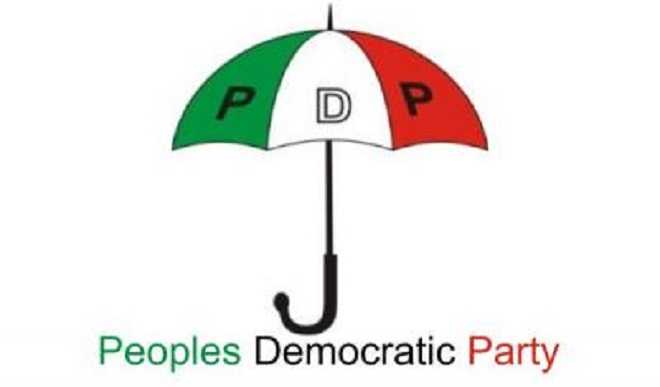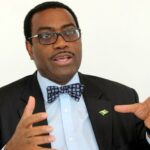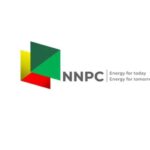
At last, it would seem that some good news is emerging from the Peoples Democratic Party (PDP), with the announcement of August 17th 2016 as the new date for its next National Convention, after what easily qualifies as a season dominated by post-election crises.Since the end the 2015 general elections when the former ruling political party in the country lost power at the centre and won in only 13 out of 36 states – a situation that suddenly degradedit to a minority party, all has not been well within its rank and file. Not a few Nigerians had been disturbed as the party seemed to have been wading through a sea of misfortunesfrom its losses on the political turf which were trailed by a medley of in-house turbulences.
The fact that even the last convention(s) of May 21st 2016 which held simultaneously in Port Harcourt and Abuja by different factions, failed to move the party forward,signalled its inability to contend with and surmountcorporate setbacks as a public institution. The emergence therefore of a date for its next convention marks another opportunity for the party to break with stagnation. The dispensation also ushers in the prospects of a rebirth for a fallen mega-party that once prided itself as the largest political party in Africa that was destined to rule Nigeria for at least fifty years nonstop.
Given the circumstances of the party, the journey to the present has been anything but smooth, especially with respect to its efforts at re-establishing rhythm and traction since its great fall in last year’s polls. From the sudden resignation and consequent flight of its substantive National Chairman Alhaji Adamu Muazu immediately after the party’s losses at the polls, to the series of mutual recrimination among its leadership, as they traded blames over its misfortunes, as well as the serial demonization of some of its officials courtesy of revelations of financial malpractices attributed to them, the PDP faced a near meltdown of its corporate structure while its image dropped to its nadir.Perhaps the only bright spot in the party’s firmament was the emergence of Ike Ekweremadu as the Deputy President of the Senate in a legislative chamber where the PDP is the minority. Otherwise the convolutions in the party or whatever was left of it, created wide spread concern with some even predicting that its best days are over.
Undoubtedly the most significant challenge which faced the party remains the serial drama that led to two contending chairmen- Senators Ali Modu Sheriff and Ahmed Makarfi, both former governors of Borno and Kaduna States respectively, running its affairs simultaneously. While the circumstances of their individual advents to the party leadership portrayed vintage PDP playout of the ‘doctrine of necessity’, the outcome of the show is proving costly with consequences that may includeplacing the success of the proposed August 17th Convention in a gamble.
With the resignation of Muazu the lot fell on the National Vice Chairman Prince Uche Secondus to hold the forte and run its affairs, hence he promptly assumed the position of acting National Chairman, pursuant to organising a national convention at which a rejuvenation of the party would be achieved. That was however not to be as Alhaji Ahmed Gulak, a former aide to ex PresidentGoodluck Jonathan cited the zoning of the vacant post of National Chairman to the North East where he hails from, and unilaterally appropriated the seat to himself, ostensibly in a self-assigned role of representing the North East. The anti Gulak lobby in the party went shopping for a force bigger that Gulak to dethrone him and in the process secured the services of Sheriff who came along and not only displaced Gulak but added to his mission, an agenda to take the post of substantive National Chairman of the party.
The presence of Sheriff, a relative outsider to the party and the plum job he landed seemingly on a platter of gold without commensurate effort on his part, did not go down well with several party bigwigs; a situation which led to the party holding two parallel conventions on May 21st 2016, with one holding in Port Harcourt and the other in Abuja. While the Port Harcourt Convention was presided over by Sheriff had its agenda for some elections vitiated by court orders, it still ended in turbulence over several issues including the tenure of the man Sheriff himself. The Abuja convention which had no plans for election seemed to have fared better. However the Port Harcourt Convention was to make up by producing Senator Ahmed Makarfi as an alternative interim party Chairman. It is his faction that has proposed the August date for the national Convention, while the Sheriff faction is still disposed to play the spoiler’s game.
There are many reasons why Nigerians needthe PDP – whenever it gets its act together.Firstly, given its electoral fortunes with 13 state governors, as well as strengths in the National Assembly and state Houses of Assembly, the country needs it as an opposition party without which the APC government and the people will be denied the benefit of alternative perspectives and options of public service initiatives. Secondly, given its circumstances in the past, the ordinary Nigerians who rallied and contributed to sustain it deserve its return in spite of the odiousness of whatever errors of commission or omission which any of its leaders may have been associated with in previous roles.
With the present spate of debilitating twists and turns in the APC establishment, a return of the PDP to reckoning will offer an interesting jostle for supremacy between the two behemoths. An interesting theatre of contest for supremacy shall be the National Assembly, especially the Senatewhere the APC is tethering on a narrow lead over the PDP. Already the circumstances associated with a leadership tussle in the APC cost it the position of Deputy Senate President which is occupied by Ike Ekweremadu of the PDP. With further extension of the leadership crises, the APC stands to lose even more political assets and resources.
If by any twist in fortunes the PDP returns to prime status and the APC fails to retain its lead in the Senate to the extent of losing ground to its rival, a change in leadership of the Red Chamber with the PDP calling the shots becomes feasible and realisable. If that happens then the country is vested with a re-enactment of the pluralistic dispensation in the Second Republic when the leadership of the National Assembly was split between two parties – with Dr Joseph Wayas of the National Party of Nigeria (NPN) serving as the President of the Senate and Chief Edwin Ume Ezeoke of the Nigerian Peoples Party (NPP) as the Speaker House of Representatives.
Without doubt the return of an energised PDP that is disposed to play a more assertive role either as an opposition to or co-driver of the governance machinery, offers more dividends to the country than the present epileptic condition of the party. That is why the party hierarchy should ensure that the opportunities for rebuilding the PDP which the proposed convention offers, are not frittered away on the altar of acrimonious and wasteful altercation.

 Join Daily Trust WhatsApp Community For Quick Access To News and Happenings Around You.
Join Daily Trust WhatsApp Community For Quick Access To News and Happenings Around You.


